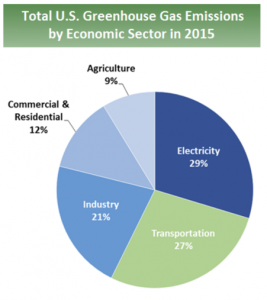Distributed Teams — Why Now? – John O’Duinn – Medium
Why are more people talking about distributed teams? Why now?
Over the last few years, I’ve been giving a series of presentations on the business, social and environmental benefits of distributed teams. One question I hear over and over is “Why now?”.
Here are the three biggest reasons I’ve seen so far:
- Money: Software startups used to raise money for a data-center and a physical office building and staff payrolls. Only then could people start working on The Next Big Thing. Regardless of what your product will be, creating your data-center takes time to setup and has risks — a data-center that is incorrectly sized for future anticipated traffic or with operational problems could kill your company. You could also kill your company by choosing to setup a physical office in the wrong location (limiting hiring) or choosing an office that is too small (disrupting hiring until you relocated or setup a second office location) or too big (needlessly increasing your burn rate even when your cash flow is tight). Since Amazon Web Services became mainstream, it eliminated the lead time for building a data-center. Of course, you still pay money for AWS, but it reduces the financial risk by instantly scaling up/down as your customer demand grows/shrinks — and some clever engineering can significantly reduce your AWS bills. Now that the cost & lead time for a data-center is off the worry list for most companies, the cost & lead time for a physical office is the expensive outlier that people are starting to question as they look for funding.

2) Social/Economic change: The idea of “a job for life” is no more. People now expect to change jobs throughout their career. When people working at high-profile organizations like Google, Facebook, Uber, etc leave after an average of 1.2–1.8 years, that means a person entering the workforce can expect to change companies ~20 times in their ~40 year career. Moving house repeatedly for your first few jobs might be fun, but after a while most people want to set down roots with a partner, buy a home, grow a community of friends, start raising a family and taking care of parents. Over time, moving becomes harder.
3) Environmental awareness: Requiring everyone to live within commute distance of an office means a lot of commuters. No surprise there. What is less obvious is the ripple effect. As higher-paid people pay more for housing to reduce their commute, it forces displacement of everyone else, so the people who are needed to make a city function are forced to live further and further away. In practical terms that means cops, medics, firefighters, teachers, artists and others all commute longer hours each way to their lower-paid jobs. The term “mega-commuter” is now used to describe anyone who commutes >2.5 hours. Each way. Each day. No wonder traffic in the San Francisco bay area has spiked up 70% since 2010, even though the population “only” increased by 10% in that same time frame.
All this traffic has a measurable toll on quality of life. It is also explicitly worth noting that of all the CO2 emissions from the US, the 2nd largest portion of emissions (27%) is from cars, buses and other transportation. Reducing the need for people to commute is an important way for us all to reduce our carbon footprint. Put another way: instead of reducing pollution by saving up to buy the latest electric car when it becomes affordable, you could start reducing pollution today simply by commuting less often and start working from home. Today.

Each of these are important reasons in their own right. And that’s not even taking into account all the other good business reasons for distributed teams like improvements to hiring, retention, diversity, quality-of-life, etc. No wonder fully distributed companies are quickly becoming mainstream. As more distributed companies succeed, they each help lead-by-example, and improve the narrative for others who follow.
These are the three biggest reasons I’ve seen for “why now”. If you’ve seen/heard any other reasons, I’d be very curious to hear from you!
Thank you
John.
(This is a modified extract from my upcoming book Distributed Teams. For more info, see oduinn.com/book.)
